Voices from Spotify and CEIPA: The Global Rise of Japanese Music
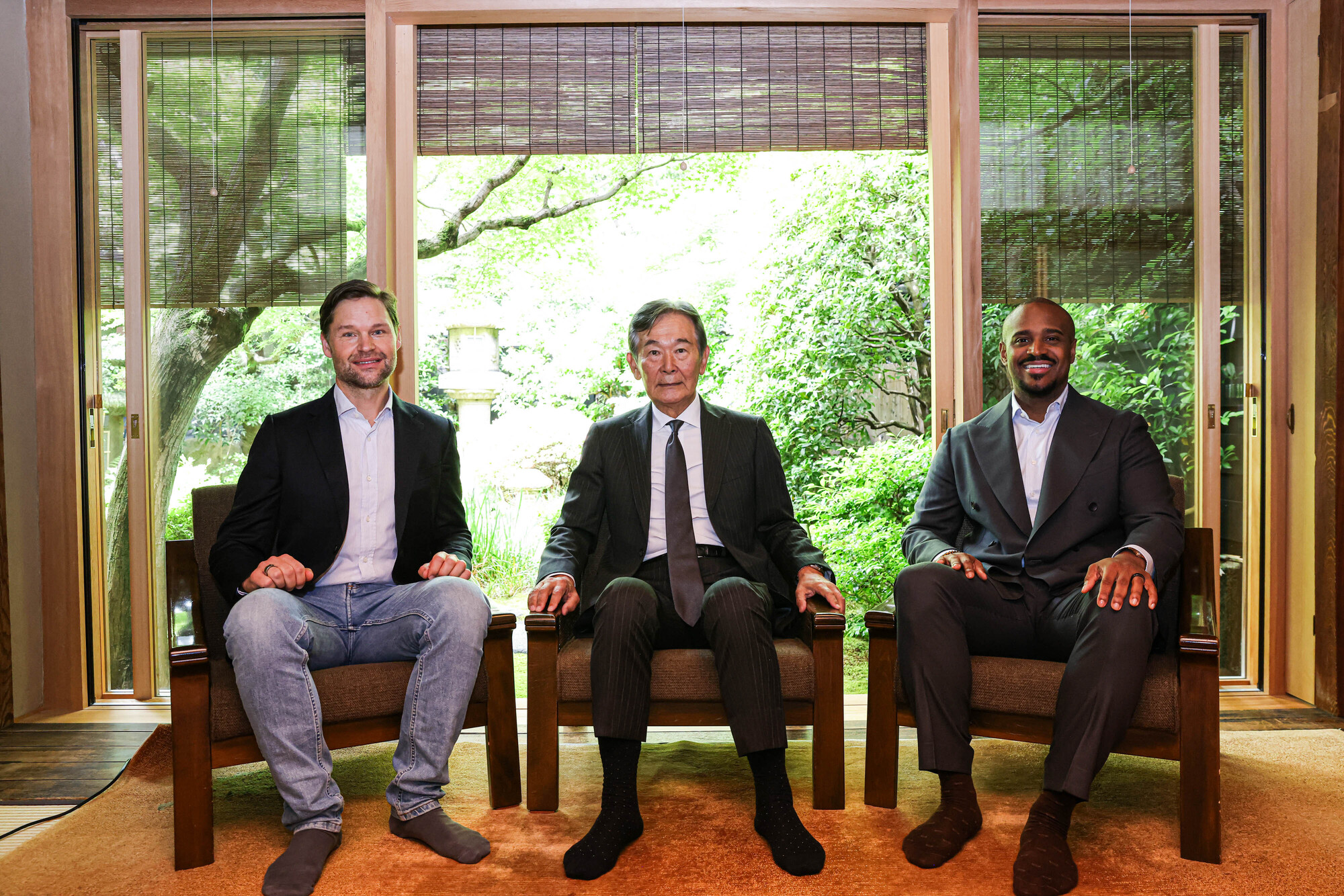
The MUSIC AWARDS JAPAN (MAJ) is the country’s largest international music awards event, created through an unprecedented collaboration between the five major organizations in Japan’s music industry under the organization CEIPA (Culture and Entertainment Industry Promotion Association). The inaugural awards ceremony took place on May 21 and 22 at ROHM Theatre Kyoto, capturing the attention of music professionals and fans alike.
To celebrate the launch of MAJ, a new initiative spotlighting the future of Japanese music culture, a special roundtable discussion took place between three key figures shaping the industry today. Shunichi Tokura, Commissioner of the Agency for Cultural Affairs — who spearheaded the creation of both CEIPA and MAJ, and took the stage as a presenter at the May awards ceremony — was joined by Spotify’s Gustav Gyllenhammar (VP of Markets and Premium Business) and Joe Hadley (Global Head of Music Partnerships), who traveled to Japan for the occasion.
Together, they explored the vision behind MAJ’s concept, “Connecting with the world, igniting the future of music,” and discussed the platform’s significance in today’s globalized music landscape. With Spotify supporting two major categories — “BEST OF LISTENERS' CHOICE: JAPANESE SONG” and “BEST OF LISTENERS' CHOICE: INTERNATIONAL SONG” — the conversation also delved into the company’s hopes for Japanese music culture and how Japan is positioned within the evolving global music scene.
Interview and text by Tomonori Shiba
2025: The Year to Establish a New Music Award in Japan
This conversation is happening on the morning of May 22, right after the Premiere Ceremony of “MUSIC AWARDS JAPAN 2025” took place yesterday. With the Grand Ceremony scheduled for tonight, how are you feeling about the event so far?
Gustav Gyllenhammar: Last night marked a historic moment for the global outreach of Japanese music. It was truly inspiring to see professionals from every corner of the music industry gathered under one roof. Typically, I meet partners individually, so having everyone come together to share in the excitement was a significant milestone.
Joe Hadley: I completely agree with Gustav. The moment I walked into the venue, I was filled with excitement. Many people there were new acquaintances to me, and I was impressed by the strong presence of international partners. It’s fantastic to witness people from Japan and across the world united to celebrate such a landmark occasion.
Shunichi Tokura: Given the unprecedented scale of this event, I have to say the staff faced considerable challenges. My role was to provide support and endorsement. The fact that the government officially recognizes and backs this international music award, marking a key step in promoting Japanese culture globally, is what’s most important. We even received a message of encouragement from Prime Minister Shigeru Ishiba, which was a great honor and source of pride.
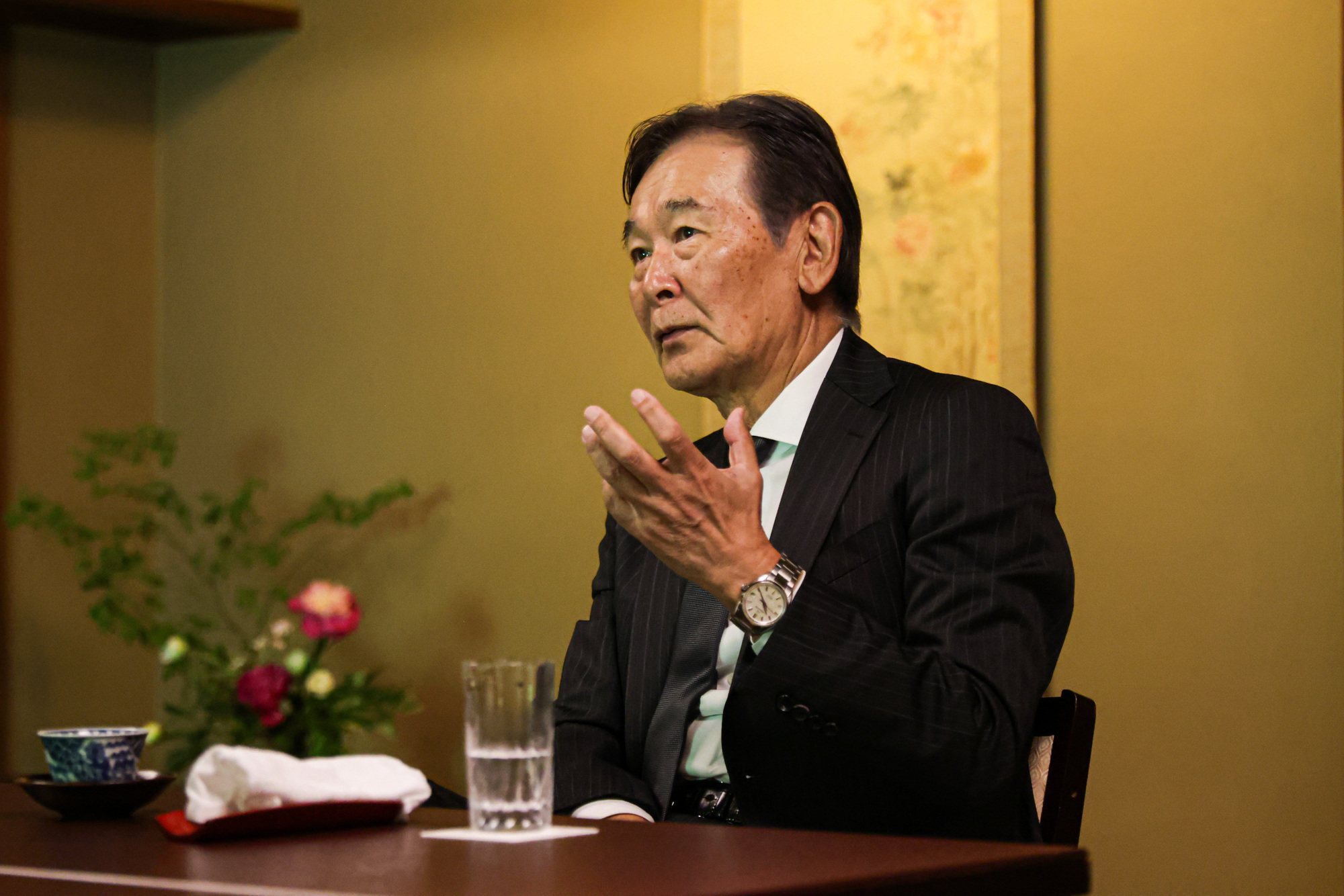
Could you please tell us again about the purpose and background behind launching "MUSIC AWARDS JAPAN"?
Tokura: The trigger was the widespread sense of stagnation across society during the COVID-19 pandemic. That period was also a major turning point for the music industry. While music streaming was becoming the dominant way to deliver music, Japan lagged behind. The country leading the way was South Korea. K-pop took the world by storm and created a global boom. Meanwhile, Japan fell behind. The entire music industry became aware of this and shared a sense of urgency.
I’m part of the Agency for Cultural Affairs, but as a musician myself, I felt this urgency strongly. Building walls wouldn’t help; everyone needed to unite and overcome this crisis together. That led to the initiative to establish CEIPA . After CEIPA was founded, the next question was what to do next. To turn our ideas into reality, we needed to launch a big, impactful event. That became the “MUSIC AWARDS JAPAN.”
What do you think is the significance of launching a new music award in Japan in 2025?
Gyllenhammar: It’s true that Japan was slower than other markets to fully embrace streaming. Japan’s music market is the world’s second largest and has long provided solid income for creators. In fact, that strength may have contributed to the delay in shifting to streaming.
Spotify has been operating in Japan for about nine years now, and in 2025, we’re seeing growth like never before. Japan is one of our most important markets worldwide, and we’re eager to invest even more resources, energy, and passion here.
Tokura: J-pop is starting to make real inroads globally — its reach is steadily expanding. This is largely thanks to the new streaming platforms. Now, anyone anywhere can easily discover music that was previously unknown to them through online networks. For example, songs I wrote back in the ’70s and ’80s are now being heard in cities like London and Paris — something no one could have imagined back then. With various channels mixing together, music now flows freely all around the world. The launch of MAJ coincides with Japan finally catching that wave. That’s how I see it.
As you mentioned, streaming services have significantly transformed the music market and culture over the past decade. How do you see these changes and what do you expect for the future?
Gyllenhammar: Streaming has completely revolutionized and sped up the global music industry. It has greatly lowered the barriers for listeners to discover new artists and music, making the discovery process much faster than it was during the CD era. This shift is incredibly positive for artists worldwide. Music now crosses borders more easily, and artists can build fanbases globally, not just locally. We’ve witnessed many success stories like this. This global connection is at the heart of Spotify’s appeal and what we’re working to promote through our partnership with CEIPA and MUSIC AWARDS JAPAN.
Hadley: Spotify currently has around 680 million users, but the global population is about 8 billion. So, we’re really just at the beginning of our journey, with plenty of room to grow. One fascinating statistic is that about half of the revenue Japanese artists earned on Spotify last year came from overseas. Even more interesting, 75% of that income was generated from Japanese-language songs. Music is crossing borders while staying true to its original language. It used to be assumed that to succeed internationally, artists had to sing in English — but that’s no longer the case. This is an exciting and encouraging shift.
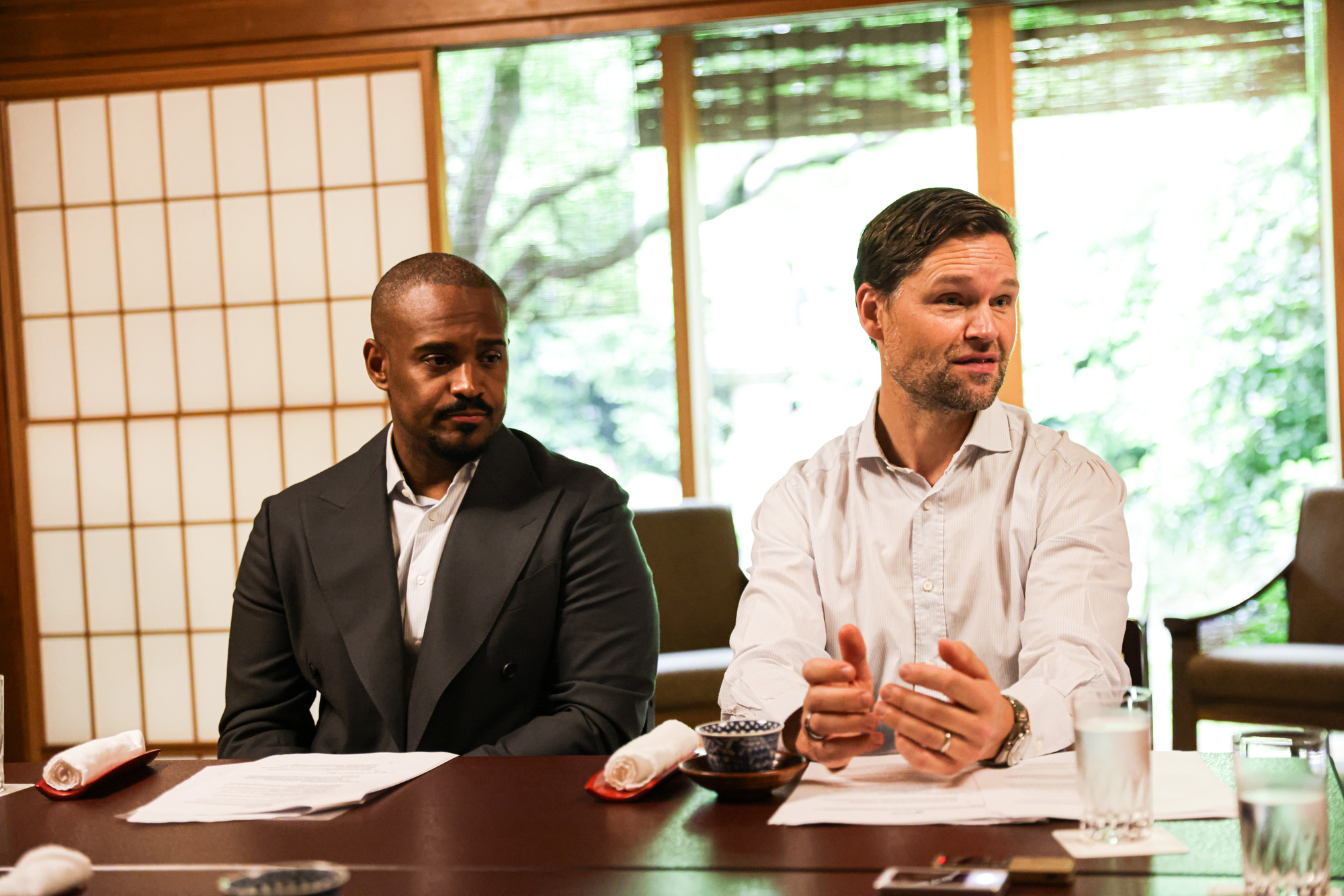
Tokura: For a long time, the language barrier was seen as an insurmountable obstacle. But that’s changing. Interestingly, a similar trend is happening in literature. Japanese literature was thought to be one of the hardest cultural products to export because of language differences. Yet now, Japanese books, including Akutagawa Prize winners, are becoming bestsellers in the UK. The all-Japanese stage production of Spirited Away has been a huge hit on London’s West End, the world’s theater capital. Behind these successes are many factors, but skilled translators have played a crucial role. As Japan globalizes, people around the world who love Japanese culture are eager to translate it into their own languages. Over the past decade, this movement has gained remarkable momentum. The Agency for Cultural Affairs holds an annual translation competition to nurture translators, and the number of applicants has been rising sharply. Interest in Japanese culture beyond language barriers is growing rapidly. With advances in AI, I believe this trend will only accelerate further. That’s my current view.
The Purpose Behind Spotify’s Involvement in MAJ
What significance does Spotify’s collaboration with MAJ hold?
Hadley: We supported two award categories this time: “BEST OF LISTENERS' CHOICE: JAPANESE SONG” and “BEST OF LISTENERS' CHOICE: INTERNATIONAL SONG.” By enabling music fans both in Japan and around the world to vote for these categories directly on Spotify, we believe we played a key role in making the awards genuinely global. Our biggest hope is that Japanese music culture will continue to spread internationally and positively influence Japanese artists and creators. We see MAJ as a powerful catalyst for that growth.

Gyllenhammar: Fans want award decisions to be democratic — not made behind closed doors, but involving those who listen to the music and connect with the artists. It’s essential that voters from Japan and overseas can actively participate. We’re proud to have contributed to these two award categories and to collaborate with CEIPA and MAJ on this initiative.
Tokura: The music industry today is inseparable from streaming services, so leveraging them as platforms for voting and submissions is hugely significant. Using Spotify as a voting tool is one of the major innovations MAJ brings to the table.
What motivated Spotify to partner with MAJ?
Hadley: In short, it’s because this is a pivotal cultural and historic moment. We didn’t want to miss the opportunity to be part of Japan’s history. Especially in the fields of arts and entertainment, we feel a strong responsibility to be involved in culturally significant events. Our conversations with CEIPA made it clear that MAJ would have a profound impact.
Gyllenhammar: For younger generations in Tokyo and other major cities, streaming has been integrated into everyday life for years now. But in other regions, it hasn’t yet become mainstream. An event of this scale sends a strong message nationwide that music matters, and streaming has become firmly established. That’s why our involvement is so important.
Watching the Premiere Ceremony, I was struck by how the awards recognize not just artists but also behind-the-scenes professionals like engineers. Was the Grammy Awards a model for this approach?
Tokura: I’ve deliberately referred to MAJ as the “Asian version of the Grammy Awards” for about a year now, and there’s no doubt the Grammys serve as a key role model. The defining feature of MAJ is that it’s an award voted on by 5,000 music industry professionals. While the Grammys have over 10,000 voters, what really matters is that everyone involved in the music industry, from artists to those working behind the scenes, like engineers, gets to participate in the voting. Compared to the history of Japanese music awards, this is truly revolutionary.
What kind of impact have international music awards like the Grammys had on music culture and the market?
Gyllenhammar: Large-scale events that celebrate music and culture, like these awards, have a very positive effect on streaming services. Following MAJ, we can expect many artists to see their popularity grow both in Japan and overseas. The same pattern occurs after the Grammys, and a similar effect is seen with Europe’s Eurovision Song Contest. These events help create a virtuous cycle of success. What sets the Grammys and MAJ apart is their broad recognition of the entire music industry — not just the big-name artists, but also the engineers, producers, and songwriters who usually work behind the scenes. That inclusivity is what makes them so important.
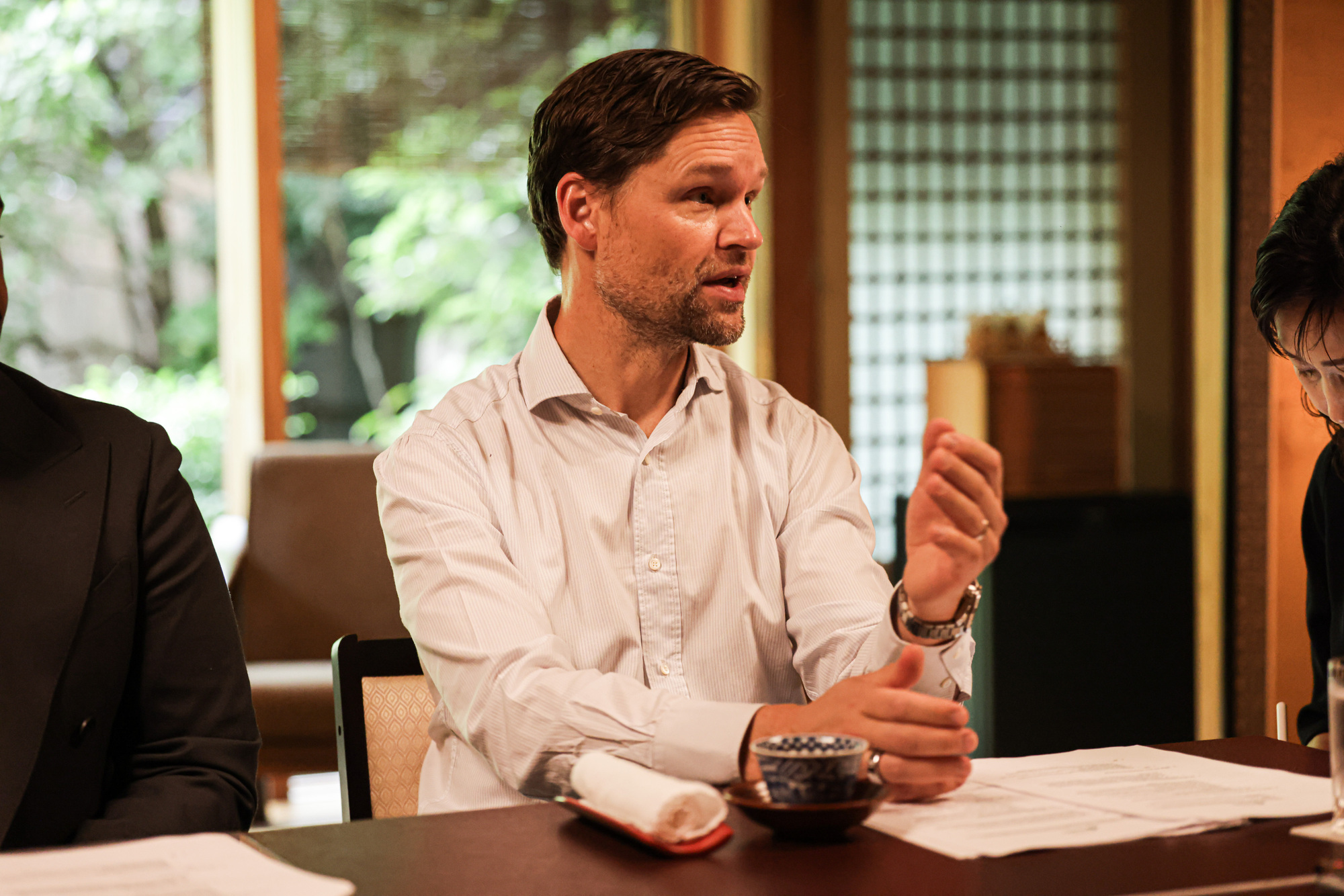
Tokura, you’ve referred to MAJ as the “Asian version of the Grammy Awards,” and the inclusion of the “Asian Song Award” as a key category is a significant aspect. What are your thoughts on celebrating Asian music from Japan through this initiative?
Tokura: Having worked extensively in copyright management, including as chairman of JASRAC (Japanese Society for Rights of Authors, Composers and Publishers), I was involved in founding the Asia-Pacific Music Creators Alliance — the first regional organization of music creators in Asia. While CISAC exists globally, Asia lacked such a creator’s organization despite being the most populous region, and many countries didn’t have adequate copyright protection. Through my interactions, I found that these countries deeply respect, admire and look to Japan as a leader. That’s why Japan must take the lead in promoting Asian culture to the world. The participation of artists from Vietnam at this ceremony is a powerful symbol of this mission. Moreover, this model should expand beyond music to other creative fields such as film, theater, and art. The next step could be the film industry, where I hope to build partnerships with film festivals worldwide. Ultimately, my goal is to establish culture and the arts as a cornerstone industry for Japan.
The Essence of “Made from Japan”
What are your thoughts on Asian and Japanese music culture?
Hadley: Japanese music is remarkably diverse and continues to grow rapidly year after year. Recently, artists like Yuki Chiba have made significant breakthroughs. There’s also been a noticeable rise in global artists referencing Japanese pop culture.
Gyllenhammar: Asia is Spotify’s fastest-growing region worldwide. We’ve established regional offices and increased investments to support the music industry there. When it comes to Japanese music, with many Japanese artists playing key roles at major global events like the Coachella Valley Music and Arts Festival in recent years, we believe this is an ideal moment for Japanese music to make a strong international impact. We’re thrilled to be part of this development.
Considering the current landscape, what do you think is necessary for Japanese music to expand further on the global stage?
Hadley: Success often comes from collaboration, both locally and internationally. For example, South African artist Tyla teamed up with Nigerian artist Ayra Starr and made a major breakthrough in Europe and the US. The key is leveraging platform data and tools to identify the right collaborators for meaningful partnerships.
Gyllenhammar: Many successful cases have involved collaborations with global superstars. In Latin music, Luis Fonsi worked with Justin Bieber; in Afrobeats, Burna Boy partnered with Ed Sheeran; and in K-pop, BLACKPINK’s ROSÉ joined forces with Bruno Mars. These collaborations are deliberate and essential. Artists from smaller markets might wonder why global stars want to work with them, but those stars actively seek out these partnerships because it helps them grow their fanbase in new markets. So artists should proactively pursue collaboration opportunities.
Tsukura: I often use the concept “FBI” — meaning “Made from Japan, Made by Japanese, Made in Japan.” We already see a lot of “Made by Japanese” — with Japanese creators flourishing globally in classical music, ballet, Broadway, acting and more, pursuing their potential worldwide. But right now, Japan is still too focused on “Made in Japan,” which feels like self-imposed isolation, building walls around itself. What’s really important is “Made from Japan.” It doesn’t have to be created by Japanese people, but talent needs to gather in Japan. People who want to collaborate with Japanese artists should come here. I believe “MUSIC AWARDS JAPAN” can be a powerful catalyst to make that happen.
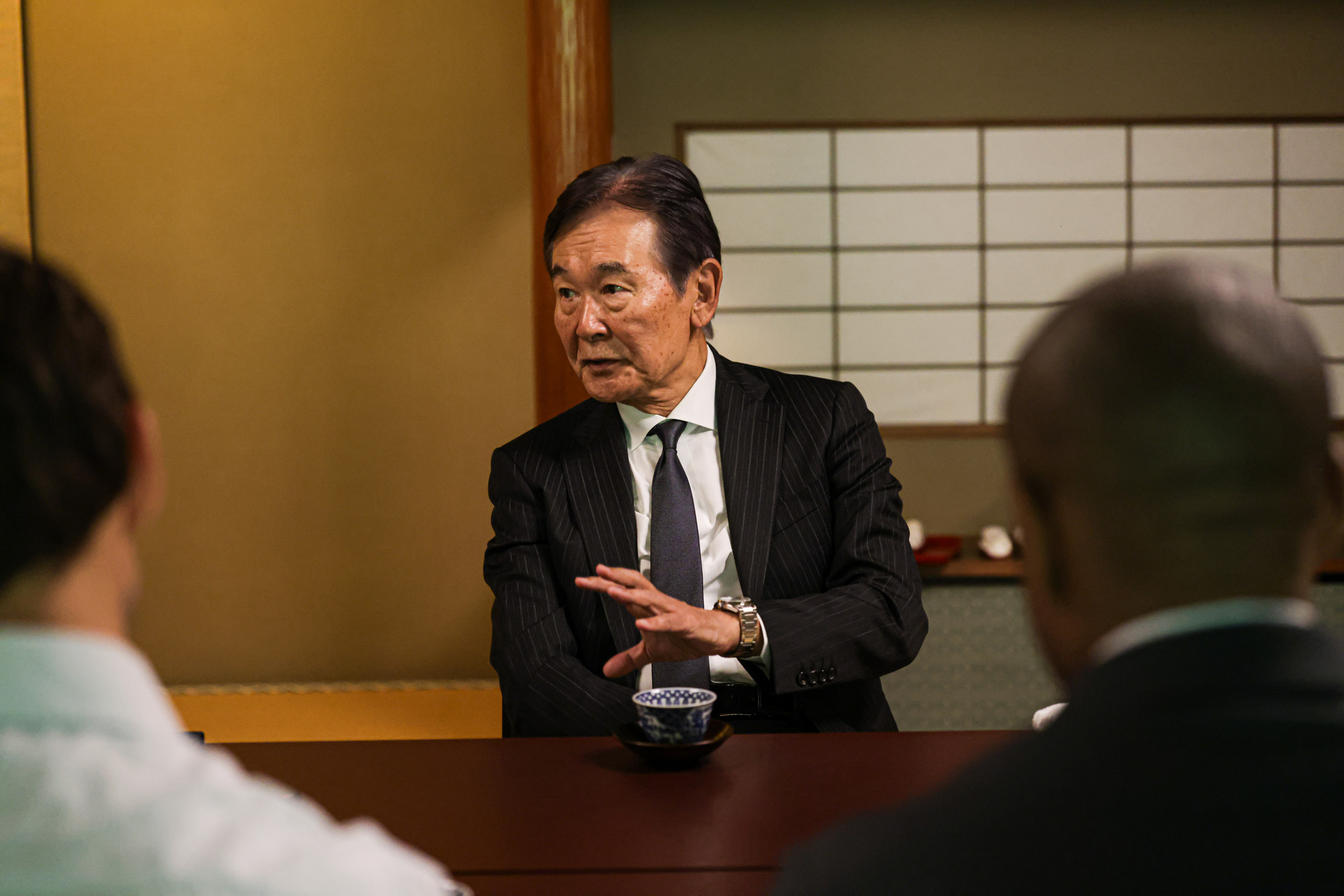
Lastly, what are your expectations for the future of Japanese music culture?
Hadley: The wide variety of genres and the global spread of Japanese music, — still performed in Japanese — demonstrate huge potential. The artists are at the forefront of this movement. I have great hopes and believe there’s a lot we can collaborate on going forward.
Gyllenhammar: Japanese culture and soft power are gaining worldwide recognition, from food and video games to anime and even baseball lately. Japanese professionals have proven they can lead on the global entertainment stage. I expect to see even more such success stories in the music industry because of the real talent and strong commitment across the sector. I’m excited about the positive momentum ahead.
Tsukura: According to Japan’s 2024 export data released this spring, while the automotive industry remains number one, the content industry has impressively surpassed semiconductors and steel. Semiconductors are at 5.5 trillion yen, steel at 4.8 trillion yen, and content at 5.8 trillion yen — but 90% of the content industry’s exports are games, anime, and manga. This means we’re still in the early stages. The potential of Japan’s content, art, and culture industries is enormous. CEIPA aims to industrialize culture, not just music. Japan is a major economic power but cannot rely on mass production and consumption anymore. With the world’s oldest population, Japan must focus on developing high value-added industries. MAJ can play a central role in that. Also, I’m exploring ways to integrate elements like Eurovision into MAJ — creating a platform where new hits emerge and fresh artists debut. For example, the 1974 Tokyo Music Festival produced American group The Three Degrees’ international hit. We’re actively discussing these ideas.